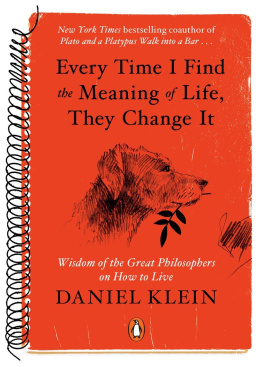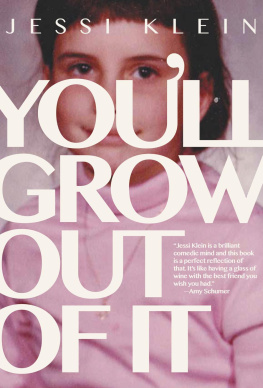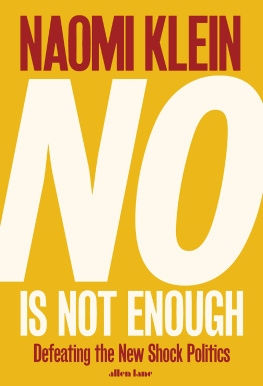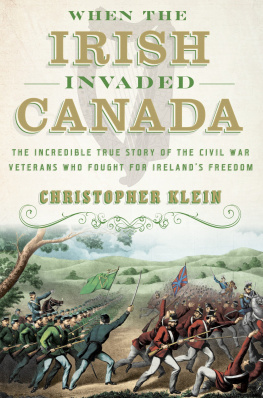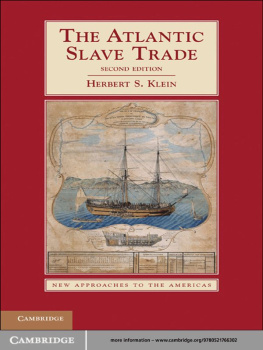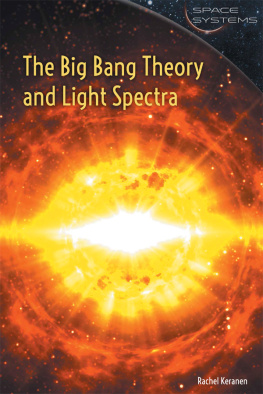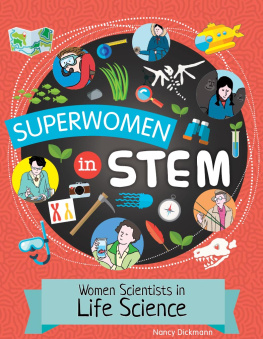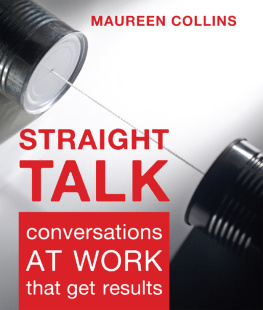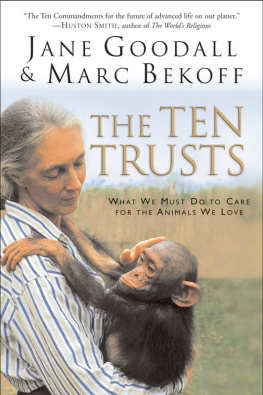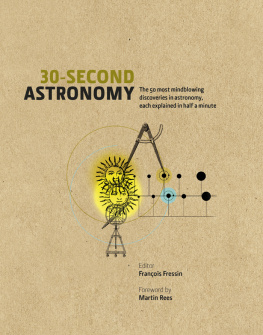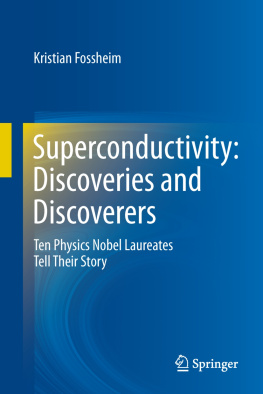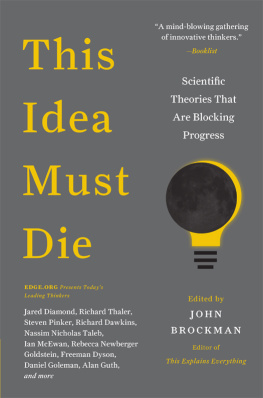A LSO BY S TEFAN K LEIN
Survival of the Nicest: How Altruism Made Us Human and Why It Pays to Get Along
Leonardos Legacy: How Da Vinci Reimagined the World
The Secret Pulse of Time: Making Sense of Lifes Scarcest Commodity
The Science of Happiness: How Our Brains Make Us Happyand What We Can Do to Get Happier
We Are All Stardust
Scientists Who Shaped Our World Talk about Their Work, Their Lives, and What They Still Want to Know

Stefan Klein
Translated by Ross Benjamin

Contents

ON THE COURAGE TO SPEND A LIFETIME SEARCHING
COSMOLOGIST MARTIN REES
ON THE BEGINNING AND END OF THE WORLD
EVOLUTIONARY BIOLOGIST RICHARD DAWKINS
ON EGOISM AND SELFLESSNESS
NEUROSCIENTIST V. S. RAMACHANDRAN
ON CONSCIOUSNESS
PHYSIOLOGIST AND GEOGRAPHER JARED DIAMOND
ON CHANCE AND NECESSITY IN HISTORY
PRIMATOLOGIST JANE GOODALL
ON OUR RELATIONSHIP TO ANIMALS
PHYSICIST STEVEN WEINBERG
ON SCIENCE AND RELIGION
MOLECULAR BIOLOGIST ELIZABETH BLACKBURN
ON AGING
PHILOSOPHER PETER SINGER
ON ETHICS
PHYSICIAN AND SOCIAL SCIENTIST NICHOLAS CHRISTAKIS
ON HUMAN RELATIONSHIPS
BIOCHEMIST CRAIG VENTER
ON THE HUMAN GENOME
CHEMIST AND POET ROALD HOFFMANN
ON BEAUTY
NEUROBIOLOGIST HANNAH MONYER
ON MEMORY
NEUROSCIENTIST VITTORIO GALLESE
ON EMPATHY
ANIMAL BEHAVIOR RESEARCHER RAGHAVENDRA GADAGKAR
ON ALTRUISM
ECONOMIST ERNST FEHR
ON MORALITY
NEUROPHARMACOLOGIST WALTER ZIEGLGNSBERGER
ON PAIN
ANTHROPOLOGIST SARAH HRDY
ON MOTHERHOOD
DEVELOPMENTAL PSYCHOLOGIST ALISON GOPNIK
ON CHILDHOOD
ARTIST LEONARDO DA VINCI
ON THE BEGINNING OF MODERN SCIENTIFIC RESEARCH
Introduction

On the courage to spend a lifetime searching

S CIENCE DEFINES OUR LIVES AS NEVER BEFORE . And yet we dont know much about the people who change our world with their research. It cant be that they have nothing to share. Many of the scientists I met for the conversations in this book look back on astonishing life stories. They have unusual interests and think far beyond the horizons of their respective fields. In short, as people they are just as interesting as the actors, professional athletes, or politicians whose inner lives we hear about in minute detail.
Yet we still tend to picture all scientists as Einstein, the genius who is inept at life and sticks his tongue out at the world. This lingering perception is partly scientists own doing: They try to deny their personal side. Science aims to be objective; the self is to be kept out of it. In a scientific publication, to use the word I is sacrilege. And because scientists, of course, crave recognition as much as anyone else, they help construct the myth that surrounds them. Scientists may be discouraged from expressing their individual personalities too strongly in their professional world, but they can at least flatter themselves that they are scholars who hover above everyday things.
But theres another, deeper reason that the thoughts and feelings of scientists are unknown to the public: Our society views science with tunnel vision. Scientific research is rightly perceived as a source of prosperity; it has brought us effective medications, computers, and thousands of other amenities. The work of scientists in their laboratories is clearly useful, even if we dont always understand it. But in the eyes of most people, it has nothing to do with what really moves us, with the existential questions of our lives.
To think that way, however, is to overlook the fact that science is part of our culturelike our books, our music, our movies. From its beginnings, science has explored the mysteries of our existence. And particularly in recent years, scientists have gained many insights that help us see more clearly who we are, where we come from, and what it means to be human.
For this book I have met some of the women and men to whom we owe such insights. With two exceptions, my interviews with scientistsfrom Europe, the United States, India, and Australiatook place between 2007 and 2012. I was encountering almost all my subjects for the first time. Usually I arranged to meet with them on two consecutive days, always in a place of their choosing. Often we spoke in their offices, but we also occasionally conversed on long walks or in restaurants, museums, or their houses. The one thing I demanded in advance from the scientists was time; generally our dialoguessome conducted in German, some in Englishlasted five hours.
The interviews collected here are distilled from those conversations, edited and significantly condensed to include the most interesting passages. All but one first appeared in the magazine supplement to Die Zeit, the German weekly newspaper, and many interviews went on to be included in a prior German edition of this book. These interviews thus took an indirect path to their English-language publication here (in many cases, after having been translated into German for Die Zeit, and now translated back again). To ensure nothing has been lost in the process, every interview in this book has been reviewed and approved (and sometimes lightly updated) by the interviewee. For several conversations, I decided to take this opportunity to revisit the original, voluminous transcripts. Working directly from those, I have been able to bring to light many revealing passages not included in the former newspaper versions.
All my conversation partners enjoy a worldwide reputation in their fields, and all have made a mark by placing their research in a broader context. They include a winner of the Nobel Prize in Chemistry who has made a name for himself as a poet, a cosmologist who publicly wagers on the fate of the world in the next decades, and a physiologist who at the same time investigates the origins of civilizations in the jungles of Papua New Guinea. I have tried to give representatives of a wide variety of scholarly interests a chance to speak: A geographer, a philosopher, a social scientist, an economist, and an anthropologist offer perspectives from the humanities and social sciences. Incidentally, the selection is unabashedly subjective. Ive talked to people I wanted to meetbecause their lives and scientific contributions struck me as extraordinary.
The objection that in this collection white men are disproportionately represented is undeniable: Only five of my conversation partners are women, and only three are not from Europe or the United States. But this assortment is a snapshot of our time. I sought scientists with far-reaching lifetime achievements and broad perspectives, which are typically attained in the second half of a career. Among researchers of that age, women as well as people from Asia, Latin America, or Africa are still rare. Today the young talent in the laboratories is fortunately more diverse, and thus the assortment of my conversation partners would look different two decades from now.
In the conversations, I pursued two simple goals: to learn who my conversation partners are and what they do. For me, those are really just two ways of phrasing a single question, for I have never believed in the myth that scientists can disregard their personal side in their work. It seems to me almost self-evident that their life stories, not to mention their cultural roots, shape their interests. But for most of those I spoke with, my approach was extremely unfamiliar. As the neuroscientist Hannah Monyer put it, In science, the individual doesnt count. It was astonishing, in light of her comment, how many of them opened up about themselves once we had developed a level of trust. Had they felt burdened by the need to inhibit themselves?



